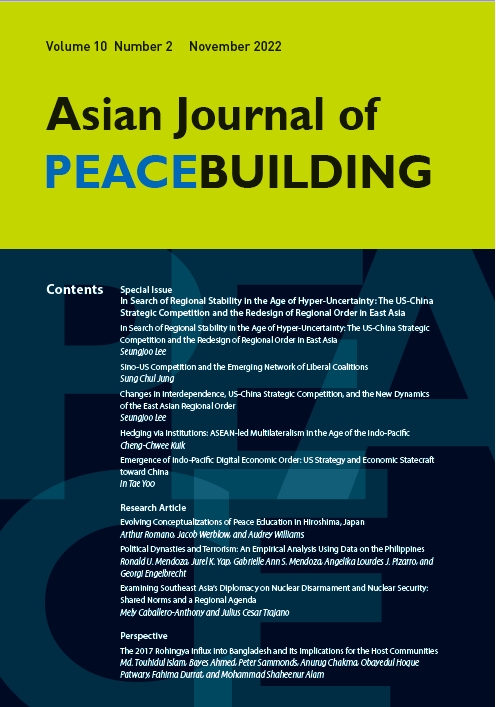As it witnesses rising China’s assertive diplomacy and growing military might, Washington is seeking to restrain Beijing’s economic growth and technological development. The Biden administration’s digital-liberal coalition initiative resonates with liberal states which have growing concerns about democratic backsliding all over the world and China’s undue influence on other countries’ domestic politics and civil society. The United States and its liberal allies are increasingly likely to cooperate in technological innovation, the development of standards and norms, and the protection of human rights, resisting this authoritarian threat to their interests and values. However, it is unclear whether and how China will adjust its foreignpolicy strategy and which option non-liberal and/or developing states will prefer in this uncertain era of Sino-US order competition in global politics.
Back Issues
Special Issue_In Search of Regional Stability in the Age of Hyper-Uncertainty: The US-China Strategic Competition and the Redesign of Regional Order in East Asia
Sino-US Competition and the Emerging Network of Liberal Coalitions
Sung Chul Jung pp. 311-331 doi: 10.18588/202211.00a318
PDF Download

